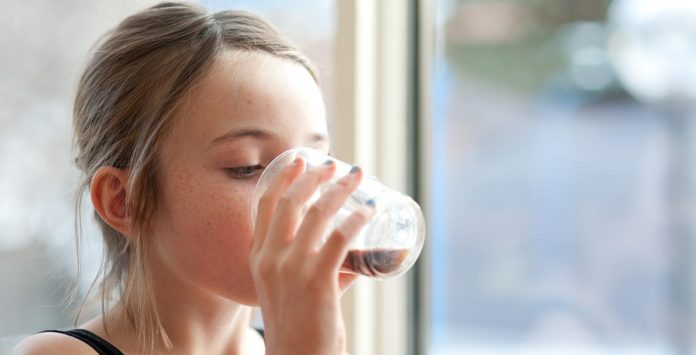
Girls who drink a lot of soda and other sugary drinks may get their first menstrual periods earlier than girls who don’t often consume these drinks, according to a new study in the journal Human Reproduction.
The research involved more than 5,500 U.S. girls ages 9 to 14 who had not yet had their first periods at the study’s start. Researchers asked the girls questions about their diets, including how frequently they consumed soda and other sugar-sweetened beverages (such as fruit drinks and iced tea), and tracked the girls for five years (from 1996 to 2001).
Girls who drank more than 1.5 servings of sugary drinks daily started their menstrual periods nearly three months earlier than those who consumed two or fewer sugary drinks per week, the study found.
“Our study adds to increasing concern about the widespread consumption of sugar-sweetened drinks among children and adolescents in the USA and elsewhere,” study author Karin Michels, an associate professor at Harvard Medical School, said in a statement. The results are important because researchers have observed that girls in developed countries may be entering puberty at younger ages, but the reason for this change remains unclear, she said.
The findings held even after the researchers took into account other factors that may affect a girl’s age of first menstruation, including the girl’s height, body mass index, ethnicity, activity level and total food intake.
When the researchers looked at the effect of specific beverages, they found that those drinks with added sugar (such as soda) were linked with earlier periods, but those without added sugar (such as some fruit juices) were not. In past studies, consuming sugar-sweetened beverages has been linked to weight gain. And obesity, in turn, has been shown to increase the risk for early onset of menstruation. But this latest study found that BMI had only a small effect on the link between sugary drinks and early periods, meaning that other factors account for the findings.
For example, since sugary beverages have a high glycemic index, the researchers say it’s possible that the resulting increase of insulin may raise the girls’ concentrations of sex hormones. These changes in sex hormones can cause earlier menstruation. Furthermore, the researchers also point out that 1.5 servings of sugary drinks is far less than what many young girls drink. Higher consumption of sugary drinks may be even more strongly associated with early puberty, they add.
Still, the study found only an association, and cannot prove there is a cause-and-effect relationship between sugary drinks and earlier periods. It could be that girls who have started to mature early also tend to drink more sugary drinks because they are more mature, the researchers said. (For example, these girls may have different tastes, or may be treated differently by their parents, than girls who mature later.)
While the difference may seem small, the researchers say that the three-month discrepancy is a noticeable amount of time to be attributed to sugary drinks. They note that a one-year decrease in the age at which a girl starts her period is linked with a 5 percent increase in the individual’s risk of breast cancer, and so a three-month decrease in age of first period could have a “modest impact” on breast cancer risk. Earlier menstruation is also a risk factor for depression in youth, the researchers add.
